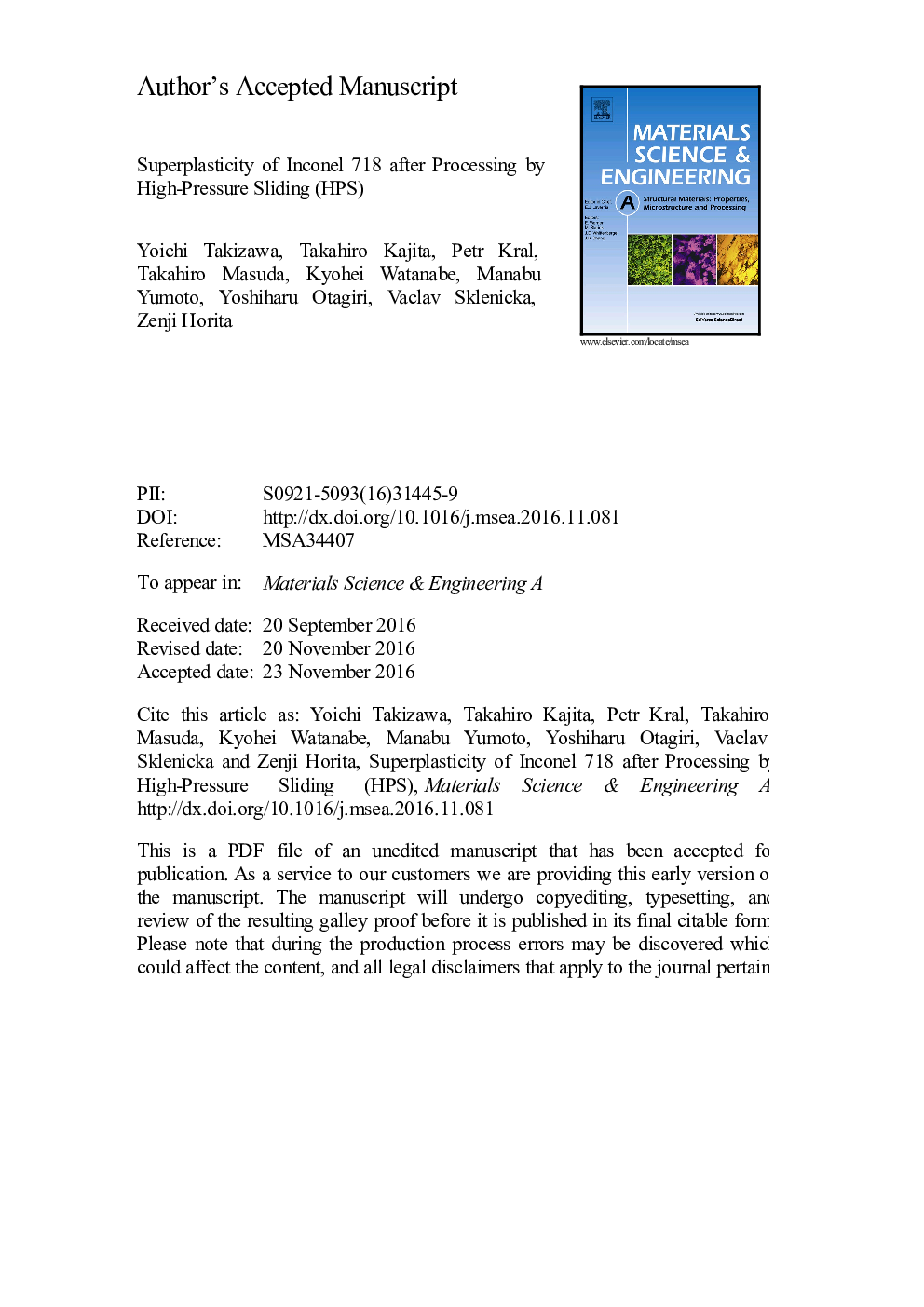| Article ID | Journal | Published Year | Pages | File Type |
|---|---|---|---|---|
| 5456437 | Materials Science and Engineering: A | 2017 | 27 Pages |
Abstract
This study reports a production of a superplastic Ni-based superalloy (Inconel 718) using a process of severe plastic deformation through high-pressure sliding (HPS). The grain size of the alloy was reduced to ~120Â nm by operating the HPS process under 4Â GPa at room temperature with a recently upscaled facility. The ultrafined-grained structure was well retained even after annealing at 1173Â K for 1Â h. Tensile tests were conducted in air at a testing temperature in the range of 973-1173Â K with an initial strain rate of 5.0Ã10â4-2.0Ã10â2Â sâ1. Superplastic elongation more than 400% were attained at all testing conditions except at 973Â K. High-strain rate superplasticity (defined with strain rates higher than 1Ã10â2Â sâ1) was achieved at temperatures higher than 1073Â K. Electron back scatter diffraction analyses revealed that a preferential orientation of the grains was developed by the HPS processing but it was randomized with tensile deformation. Evaluation of the strain rate sensitivity and the activation energy for the superplastic deformation confirmed that the superplasticity of Inconel 718 was controlled by grain boundary sliding through lattice diffusion.
Keywords
Related Topics
Physical Sciences and Engineering
Materials Science
Materials Science (General)
Authors
Yoichi Takizawa, Takahiro Kajita, Petr Kral, Takahiro Masuda, Kyohei Watanabe, Manabu Yumoto, Yoshiharu Otagiri, Vaclav Sklenicka, Zenji Horita,
